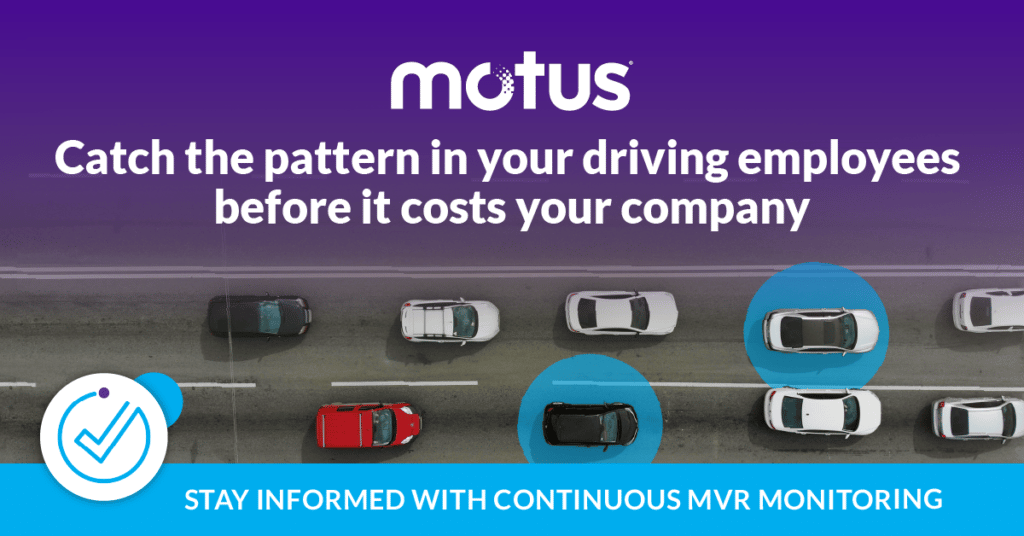Setting up a company-provided vehicle program means juggling several priorities. Vehicle acquisition and registration is one thing, the company car policy is another. So what is a company car policy? What does it cover? What should be included and what should be left out? In this post we’ll answer all these questions and more.
What is a company car policy?
A company vehicle policy sets the standards for employees allowed to drive fleet vehicles. More than a “you must be this tall to ride this ride” measure, this policy generally includes job role requirements, rules employees must follow and the repercussions if they do not.
Let’s say that a consumer electronics retailer has a fleet of vehicles. The only employees that need to drive for work are the techs that visit customers to help them troubleshoot their issues. This retailer’s company vehicle policy would specify that only these techs can drive fleet vehicles.
Things to Consider When Creating a Company Car Policy
Creating a company car policy can be as simple or complex as a company needs. Some companies may have multiple vehicle programs, or a number of different fleets. Some companies may outsource the whole process to a fleet vendor. Whatever the case, companies should consider several aspects of their company car policy, including driving record, insurance verification and personal use.
Elements of a Company Car Policy
What should go into your company car policy? There are a number of things to consider, from who should be driving company cars to how they should report maintenance needs and more. Let’s take a look at each piece, starting with who should have access to one.
Employees Assigned a Company Car
What role, or roles, require a company car? Is it primarily for your business’s sales team? Is it for employees providing services? Is it for regional managers traveling to a number of different stores? This is important to nail down, especially if your company has more than one vehicle program. Some roles can function being reimbursed for driving their personal vehicles.
Prerequisites to Drive a Company Car
You know what job roles require access to company vehicles. Now you need to set up your company’s standard. What prerequisites do they need to meet to qualify for that position? One easy standard is auto insurance. It is illegal to drive in the United States without insurance. That doesn’t mean it doesn’t happen. Whether the person behind the wheel can’t afford it, or they simply forgot to renew their coverage, it doesn’t matter. If driving is essential to the role, employers should verify each of their employees has auto insurance. The ideal vendor will perform insurance verification and send reminders to both company and driving employee when one is out of compliance.
Driving Record
One of the biggest risks of a fleet program is liability. If an employee is found at fault in an accident involving a company vehicle, the company often becomes the target of a lawsuit. One method of mitigating this risk is screening potential driving employees using motor vehicle record (MVR) checks. An MVR will provide the company with a history of the employees driving infractions. Depending on the state, this could be from the last five years, or 10.
Companies often use MVR’s to verify a potential candidate for a driving role meets their needs. Unfortunately, a noted issue with MVRs is they won’t catch bad behavior if an employee hasn’t driven all that much. If an employee has little experience behind the wheel since first getting their license, that won’t show up. MVR’s can be pulled annually, to ensure the company is aware of any changes to driving records. More functionally, MVR’s can also be pulled continuously. This means that employers will be notified with an updated MVR should one of their employees be charged with an infraction. Continuous MVR Monitoring allows employers to catch patterns of bad driving behavior, hopefully before it’s too late.
Employees with Disabilities
Talent comes in all forms, and your company is an equal opportunity employer. So how will you accommodate an employee with disabilities? Will this require a new vehicle? Or a vehicle in the current fleet adapted to meet the needs of that individual? This piece of your company car policy should be figured out long before it comes up.
Driver’s Responsibilities
With a fleet program, your company owns the vehicles your employees drive. But your employees are the ones behind the wheel. So how much does your company expect from them? And how much responsibility will they agree to? For some companies, it might be as simple as representing the company through their actions on the road. For others, that might include keeping track of personal mileage.
Reporting Maintenance
All vehicles need maintenance, and fleets are no exception. So, when the “maintenance required” light pops on, what’s the procedure? Should employees inform the company within the day? Within the week? And how will your company accommodate the maintenance needs of the vehicle with the business duties of the employee? Or, say the maintenance required is more than an oil change and tire rotation? If the vehicle requires paint or part replacements, how should the employee proceed?
Accident Procedures
As touched on above, sometimes maintenance is more than just traditional wear and tear. Accidents happen. Whether that accident is merely a scrap along the side of the fleet vehicle, a non-fatal collision with another vehicle or a fatal collision, your company needs to have a plan in place. Who do your mobile workers contact first? Is there a particular tow company to contact? These questions and more should be answered in your company car policy.
Protecting the Environment
More and more companies are getting onboard with corporate sustainability. How that impacts your vehicle program depends on the level of your company’s commitment. It could be as extensive as replacing your current fleet with an electric one. It could also be as simple as phasing out older, less efficient vehicles and replacing them with vehicles that have better emission systems. Whatever the case, your company’s stance should be reflected in its company car policy.
Personal Use
A large draw for company vehicle programs is the fleet vehicle benefit. Generally, businesses allow driving employees to use company-provided cars for personal reasons. And to some employees that’s a pretty neat perk. A vehicle you don’t have to worry about maintaining, or pay for gas for, or re-register each year? Sounds great. But fleet vehicles aren’t all sunshine and roses.
Mileage Capture
The IRS acknowledges that there are some serious benefits to fleet vehicles. And that those benefits are taxable. However, if employees record their personal miles and pay their employer for it, the benefit is no longer taxable. Most companies do not enforce this. They may charge employees $150 a month for usage, but without proper mileage logs, these charges won’t hold up in the event of an audit.
Compliance with the letter of IRS regulations means mileage capture. This can be done manually, or through an app. Tracking miles for personal use of a fleet vehicle may turn some off of the perk. An automated option will be the most painless and accurate method.
Fuel Card
Fuel cards are an easy way to ensure employees never run out of gas while driving for work. But, without the right policy, they can also ensure employees never run out of gas while driving for personal reasons. What can a company do? A popular method is establishing a rule that no employees fuel up from Friday to Sunday. But that isn’t stopping anyone from fueling up late on Thursday and early Monday morning.
The challenge with fuel cards is insight. Without mileage logs linking the fuel spend to business travel, it’s impossible to know what fuel went towards what travel. Considering how out of control fuel spend can get, now might be a good time to take another approach.
Driver Rules
Your company car policy depends on the standards of your company. The same can be said of the rules you set for your driving employees. The list below includes rules essential to operating any vehicle (obey traffic laws), and a handful of rules that are simply common sense (lock your vehicle). Reading this list may help you think of more to add for your own company.
- Obey traffic laws
- Document driving expenses
- Monitor gas, tire pressure and fluid levels
- Report any damage
- Report changes to driver privileges
- Always lock the vehicle
- Bring vehicle to schedule maintenance appointments
- Don’t drive when fatigued or under the influence
- Don’t smoke in the vehicle
- Do not lease, sell or lend the vehicle
- Do not use a phone while driving
- Do not allow unauthorized drivers to use vehicle
What happens when an employee violates company car policy?
Employees who drive fleet vehicles for work are an essential piece of any business. But those employees are also in a unique situation with a lot of the company’s trust. Not following company car policy means breaking that trust, and potentially exposing the company to considerable risk. As with anything, the severity of the punishment should match the severity of the infraction. Here are some questions to consider when creating company car policy:
- What infractions or repeated offenses will earn a driving employee a verbal warning?
- Which infractions or repeated offenses require driver safety training?
- What infractions or repeated offenses are severe enough to warrant removal from a driving role?
- What amount is your company comfortable spending on lawsuits and legal fees in the event of an accident?
Considering Every Option
If your company is looking at their company vehicle policy, they’re either interested in fleet vehicles or maybe ready to see some change. Fleet is the most expensive vehicle program, costing companies nearly $13,000 per driver each year. There are several other vehicle programs that may be more suited to the needs of your company. Interested in learning more about other options? Check out the Guide to Vehicle Programs.









